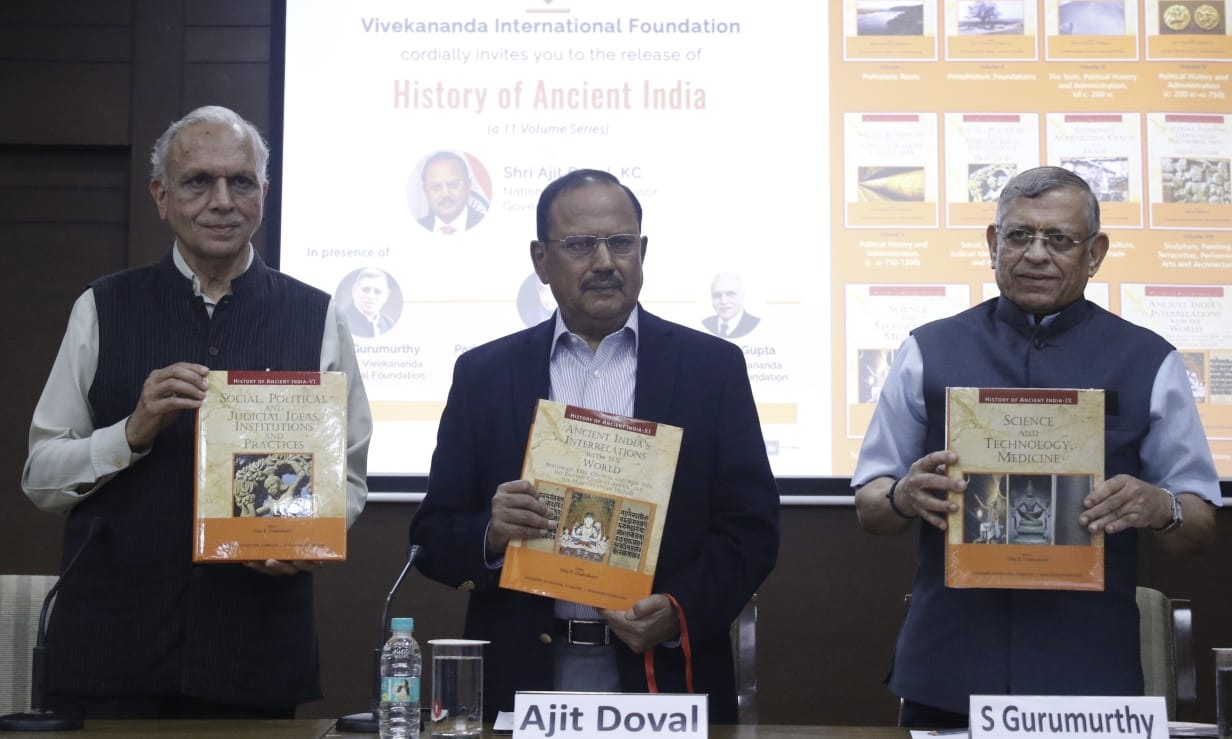Indian Civilization: An Ancient and Continuous Legacy, Remarks by NSA Ajit Doval

Latest Defence News
India
India, a land steeped in history, boasts one of the oldest and most enduring civilizations known to humanity. National Security Adviser Ajit Doval recently shed light on the remarkable characteristics that define the essence of Indian civilization during an event organized by the Vivekananda International Foundation in New Delhi.
Addressing the gathering, NSA Doval underscored three fundamental aspects that encapsulate the essence of Indian civilization: antiquity, continuity, and vast expanse.
Antiquity stands as the cornerstone of Indian civilization. With a history spanning millennia, India holds the distinction of being one of the oldest civilizations on Earth. Debate may arise regarding the origins of its people, but the antiquity of Indian society is a universally acknowledged fact, even by its detractors.
Continuity emerges as another defining feature of Indian civilization. Unlike many other ancient civilizations that experienced abrupt declines or collapses, India's societal fabric has remained remarkably intact over the ages. Spanning over 4,000 to 5,000 years, the continuity of Indian civilization is a testament to the resilience and adaptability of its people.
The vast expanse of Indian civilization is equally noteworthy. From the banks of the river Oxus to the shores of Southeast Asia, the footprint of Indian culture and heritage is evident across a sprawling geographical landscape. Contrary to the notion of a small isolated hamlet, Indian civilization flourished across diverse terrains, influencing and enriching societies far beyond its borders.
NSA Doval also addressed the historical narrative surrounding Alexander the Great's expedition to India. While Western accounts often portray Alexander's conquest as a pivotal moment in world history, NSA Doval offered a different perspective. He highlighted that Alexander's incursion into India was not a transformative event in Indian history but rather a fleeting episode on the periphery of the Indian subcontinent.
Alexander's foray into India halted at the banks of the Jhelum River, failing to penetrate deeper into the heart of the Indian subcontinent. Despite this, Western historical narratives often magnify Alexander's campaign, portraying it as a watershed moment in global history. However, NSA Doval challenged this portrayal, emphasizing that Alexander's incursion did not alter the course of Indian civilization in any significant manner.
In essence, the grandeur attributed to Alexander's conquest belies the deeper and more enduring story of Indian civilization's continuity and resilience. While Western accounts may focus on Alexander's exploits, the true narrative of Indian civilization spans millennia, encompassing a rich tapestry of culture, tradition, and societal evolution.
In conclusion, NSA Ajit Doval's reflections on Indian civilization offer a refreshing perspective that challenges conventional historical narratives. By highlighting the enduring characteristics of antiquity, continuity, and vast expanse, he invites us to delve deeper into the rich tapestry of India's cultural heritage. Beyond the fleeting episodes of conquest and colonization, Indian civilization stands as a testament to the resilience and enduring spirit of its people.


